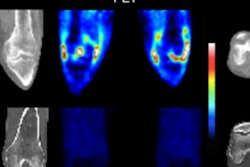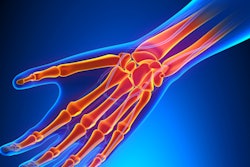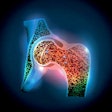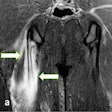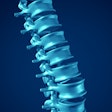The findings of a new Danish-Norwegian study are reviving the claim that the recent drop in breast cancer mortality is not due to mammography screening but rather the result of improved treatment. The authors assert it's time to consider alternatives to mammography screening -- such as breast palpation by physicians
While it's an accepted fact that mortality from breast cancer has been declining for the past several decades, mammography skeptics have asserted that the drop is due to better treatment, while screening proponents have countered that screening and treatment combined should take credit.
To investigate the question, a research team led by Henrik Støvring, PhD, an associate professor at Aarhus University in Denmark, compared changes in mortality among women eligible for screening to concurrent changes in younger and older ineligible women. They segmented the birth cohorts into three categories by age (International Journal of Cancer, 25 August 2018).
They used birth cohorts from 1896 to 1982 before screening was introduced and compared them with cohorts from 1987 to 2010 that included 4,903 women who died from breast cancer. They included women ages 30 to 89 and constructed three age groups: women eligible for screening, younger women ineligible for screening, and older women ineligible for screening.
They estimated relative incidenceâ€based mortality rate ratios in Norway comparing temporal changes in eligible women to concurrent changes in ineligible women. They also compared the change in eligible women to younger, ineligible women with either continued accrual and followâ€up period or continued followâ€up period.
All three age groups experienced a reduction in mortality when screening was introduced, but the decrease among eligible women was about the same among ineligible women (relative mortality rate ratio = 1.05, versus 0.94â€1.18), the study authors wrote. Varying the definition of followâ€up yielded similar results, they added.
"The new study shows that screening does not lead to women living longer overall -- and this is the study's most important finding," Støvring noted in a press statement accompanying the study. "The women who are invited to screening live longer because all breast cancer patients live longer, and they do so because we now have better drugs and more effective chemotherapy."
Støvring also stated his belief that mammography screening leads to overdiagnosis, in which cancers are detected that would never pose a health threat to women. He thinks the new findings indicate that alternatives to breast screening should be investigated -- one of which could be clinical breast exam.
"If a doctor could instead examine women's breasts with his or her hands, what is known as palpation, at regular intervals, then we would avoid much of the overdiagnosis," Støvring concluded.




